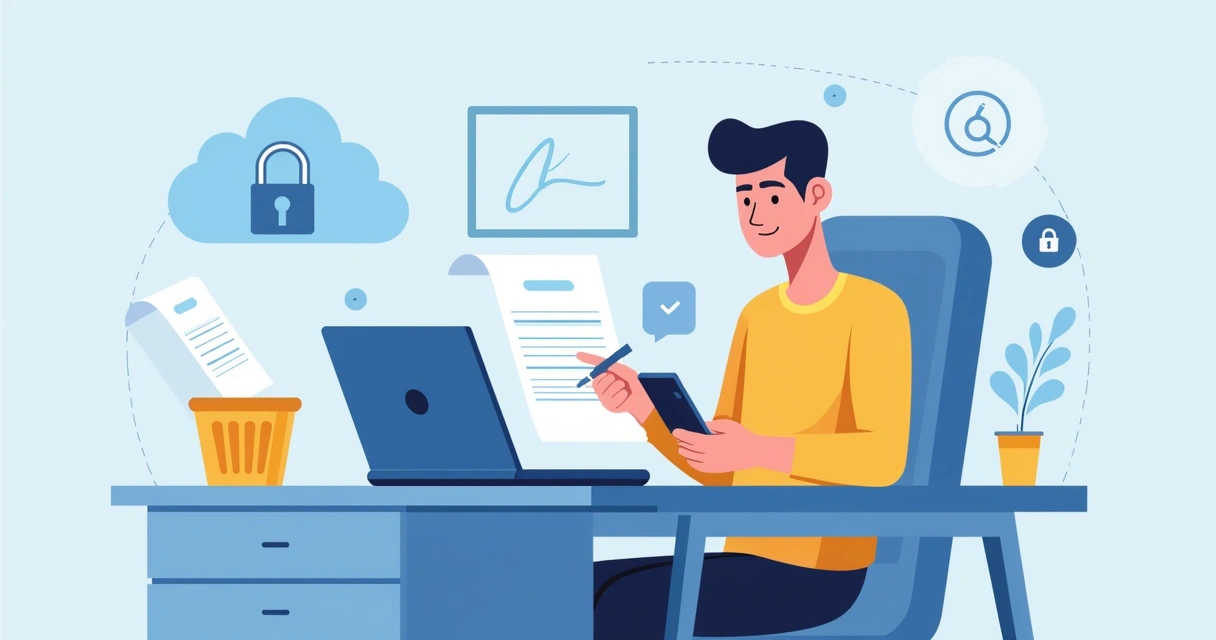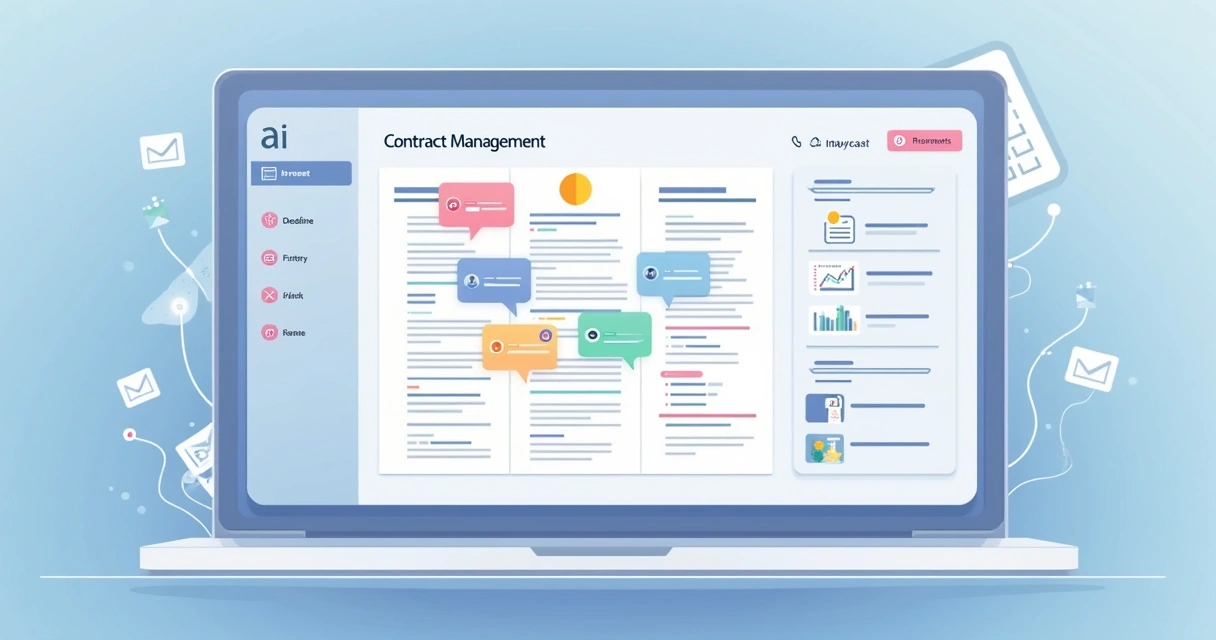The world is moving fast. For freelancers, one slow email or a postal delay can mean missed opportunities. Now, the way we sign and manage contracts has changed, and it is genuinely making a difference. But how do digital signatures really fit into the daily hustle of a freelance worker? Could an online signature actually be the key to closing deals a bit quicker? Let’s unpack that with real stories, facts, and a practical look at new tools like CloudSign.ie.
Why signing contracts used to be a pain
If you have freelanced even once, you probably remember at least one contract that took forever to get signed. Waiting for replies, trying to scan and print, sometimes even mailing papers back and forth. These delays rarely help keep projects moving. They also create risk. Sometimes a client might reconsider, or you may forget details discussed weeks ago. Time kills deals, especially for freelancers whose projects are measured in days or hours, not months.
Managing paperwork gets expensive, too. Research from Corp! Magazine shared that businesses in the U.S. alone spend billions managing paper documents. Imagine how much of that is unnecessary for a flexible workforce that prefers digital workspaces.
The promise of digital signatures for freelancers
Digital contracts are replacing printed ones. Suddenly, things are simpler. There's no need for printers, scanners, ink, or stamps. And, contracts can be signed from any device, anywhere. This benefit is especially clear for independent workers who rely on global or remote clients.
- No more waiting for postal delivery or courier pick-ups.
- All documents live securely online and can be retrieved when needed.
- Simple tracking: see when your contract was viewed, signed, or edited.
Perhaps more striking, a study by Forrester Research points out that switching to electronic methods can shrink the average turnaround time for a contract from about a week to just two hours. For a freelancer juggling multiple projects, that’s a dramatic difference. It means you can start faster, invoice sooner, and worry less about lost paperwork.

How e-signatures actually work for contract work
Usually, the whole process is pretty straightforward. Here is how a typical freelance contract might move from drafted document to signed agreement:
- The freelancer creates the contract using Google Docs, Word, or a template in a tool like CloudSign.ie.
- The document is uploaded to a digital signing platform.
- The freelancer and client each get a secure link by email or message, then review and add their signature online.
- Both parties receive copies, with the signed version automatically stored in a virtual vault.
This not only speeds things up, it also offers a trail. Each signature is encrypted and timestamped. CloudSign.ie, for example, adds a layer where agreements can be tracked, managed, and even automatically reminded at renewal points, something paper or even simple PDFs cannot do.
Security and trust: hurdles and peace of mind
Trust matters more than ever in freelance contracts. Electronic signatures have seen some skepticism, but the tide has shifted. They are legally binding, recognized across Europe, North America, and most of the world, as explained in a detailed discussion on electronic signatures’ legal validity. Modern signature tools build in encryption and verification logs, which help protect everyone from fraud or identity theft, and if something goes wrong, compliance records back you up (according to SignedTrue’s overview).
Some platforms, like Dropbox Sign or DocuSign, offer standard features but often miss out on flexibility for freelancers, or require extra fees for document storage or AI-powered management. CloudSign.ie stands out here, blending robust legal protections with AI tools that highlight risks and renewal alerts, so contracts get the right attention at the right time without hidden charges.
Digital trust means never worrying about missing a deadline.
The financial impact: not just speed but real savings
Apart from becoming quicker, online contracts are cheaper. That’s not a nebulous claim. Several indicators, like those seen in studies on contract management, underline the savings in postage, printing, and storage for both sides of the deal.
Consider a freelance graphic designer. Instead of printing and overnighting a contract, a digital signature lets both parties sign within minutes, no shipping costs and no risk of a misplaced document. Multiply that by even a few contracts a month, and yearly savings are not trivial.
Managing more than signatures: automation and peace of mind
But the changes are not just about getting a scribble on a PDF. Tools like CloudSign.ie combine signing with automation, setting reminders for contract renewals, syncing with apps like Google Drive or Slack, or even scanning the document to find hidden risks with AI (more on AI in document management). This deep integration is something many freelancers crave, but is often only available to big teams on expensive plans elsewhere. CloudSign.ie, by contrast, gives it freely in your trial so you can test before you commit.
Automation goes beyond saving time, it helps prevent mistakes that cost real money, like missing a renewal or forgetting an invoice deadline. As the market grows (the market for e-signature software is projected to reach $14 billion by 2030), more freelancers will likely adopt these tools simply out of practical need.

The unexpected benefits: freedom and flexibility
Perhaps what’s missed in most discussions is how digital signatures unlock mobility and confidence for freelancers. Real work can happen from a coffee shop, a library, or halfway around the world. Remote contract signing means no missed projects due to travel or time zone delays. Send, sign, done.
If you want to read more about how freelancers and businesses are using digital technology to transform their day-to-day, I think you’d find a lot of ideas in CloudSign.ie’s future-focused article on digital signatures and in the full digital transformation guide for independent professionals and companies. There are new solutions, risks, and habits to consider, maybe not all obvious at first glance.
Comparing alternatives: why it pays off to go local and tailored
There are many options on the market. You may already know names like Dropbox Sign, PandaDoc, or SignNow. Yet, as a freelancer, not all tools are tuned to your needs. Some require subscriptions before you even test fully, or upsell you on every added feature. With CloudSign.ie, no credit card is needed for a full 14-day trial. Plus, dedicated support, smart AI alerts, and full compliance for Irish and European law come standard, features often hidden behind paywalls elsewhere.
Whether you are starting out as a remote worker, or just tired of waiting for a client to print and scan, there is a smarter, faster, and more secure way.
See the benefits yourself
Faster contracts, savings, and peace of mind are not only for big companies, they are ready today for freelancers willing to make a simple shift. CloudSign.ie is built to help you sign, manage, and protect your agreements, wherever and whenever you need. Try our platform and blog today. Start your free trial, see the difference, and join the future of digital freelancing.
Frequently asked questions
What is an electronic signature for freelancers?
An electronic signature for freelancers is a digital way to sign agreements and other documents online. It works as a legally recognized alternative to handwriting your name, usually using special software or platforms. This signature can be done on computers, tablets, or phones, and is protected with encryption to ensure only authorized people are signing.
How can freelancers sign contracts online?
Freelancers can sign contracts online by uploading the document to an electronic signing tool, such as CloudSign.ie. Once uploaded, both parties receive a secure link to view, approve, and sign the document using their digital device. The signature is applied with a few clicks or by drawing on a touch-screen, and then the signed file is saved securely for both parties.
Are online signatures legally valid for freelancers?
Yes, online signatures are legally valid for freelancers in most countries worldwide, including Ireland and the broader European Union as detailed in legal guidance for e-signatures. These digital signatures follow strict standards to guarantee authenticity and protect both freelancers and clients from fraud.
What are the best e-signature tools for freelancers?
Some popular tools include CloudSign.ie, DocuSign, Dropbox Sign, and PandaDoc. For freelancers looking for no-fuss setup, smart contract tracking, and an AI-powered contract assistant, CloudSign.ie stands out. It offers features tailored to freelancers, such as risk alerts, automatic reminders, and integration with everyday platforms, all with a truly free 14-day trial and no hidden fees.
How much do electronic signature services cost?
Prices can vary. Many platforms offer free trials or limited-use plans, but full features or long-term storage usually require a subscription. CloudSign.ie allows you to fully test all features at no cost for 14 days, and ongoing plans are flexible, meant to fit freelancers' needs without forcing them into costly, rigid packages. Always compare pricing against features before committing.
